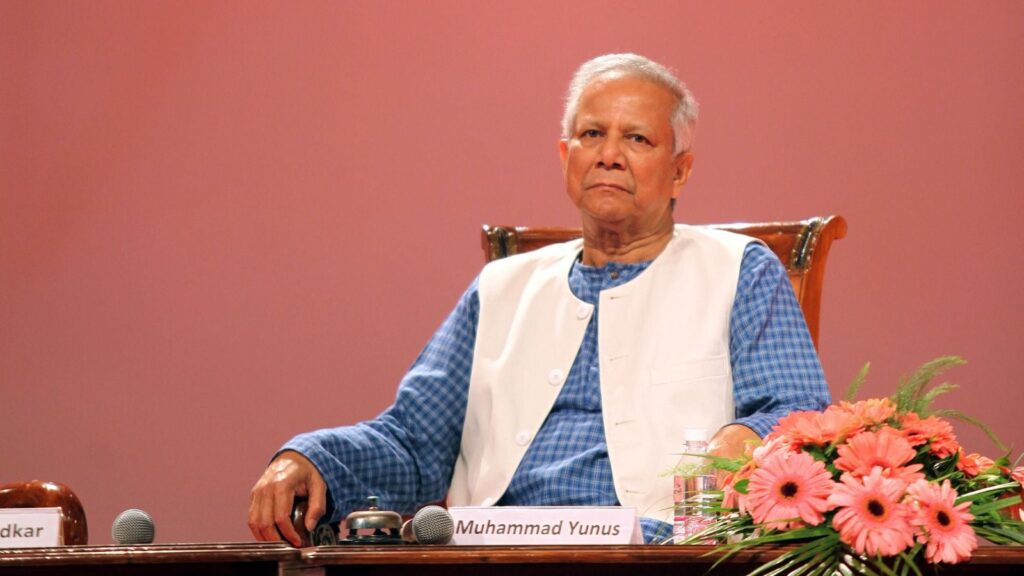Muhammad Yunus announces elections: Nearly 10 months after taking over as the head of an interim government, the country’s de facto prime minister Mohammed Yunus Friday announced that elections will be held in Bangladesh in the first half of April 2026.
“The Election Commission will provide you with a detailed roadmap for the elections at an appropriate time,” said Yunus, a Nobel peace laureate who assumed the role of interim leader last August.
Yunus had courted controversy in recent months following his overtures to China and had previously stated that he would hold elections between December 2025 and June 2026. However, political parties, including the Bangladesh Nationalist Party (BNP), which is a major player in the country’s politics, were expecting a roadmap for the elections by December of this year.
The recently formed National Citizen Party (NCP), meanwhile, argued that elections should only take place once key reforms are completed. Yunus echoed this sentiment, emphasising that his completing reforms in the correct sequence remained his priority before heading to polls.
The 84-year-old economist and entrepreneur took charge following a student-led uprising that forced then Prime Minister Sheikh Hasina to flee to India, ending her long-standing regime that had become extremely unpopular in its final months.
It wasn’t easy for Yunus, too, who in recent months faced public ire over the lack of transparency in the country’s electoral future. In May, Nahid Islam of the NCP said that Yunus threatened to step down if political parties failed to agree on reforms.


His remarks on Northeast India also faced political backlash from the neighbouring country. Wooing China during his four-day visit, Yunus had said: “Seven states of India, eastern part of India, called seven sisters… they are landlocked country, landlocked region of India. They have no way to reach out to the ocean…We (Bangladesh) are the only guardian of the ocean for all this region. So this opens up a huge possibility. So this could be an extension of the Chinese economy”.
A changed political landscape
On August 5, Sheikh Hasina was ousted following weeks of nationwide protests over recruitment quotas under which 30 per cent jobs were reserved for family and kin of the 1971 freedom fighters. The protests galvanised into a full-scale student revolution, after security forces killed over 300 demonstrators.
Story continues below this ad
Following her exit, Yunus, so-far known for his microfinance model and a target of the Hasina regime, took the centre stage as the chief advisor of the interim government on August 7. The new regime, in the following weeks, released Hasina’s political opponents from prison, including former Prime Minister Khalida Zia and other prominent leaders of the BNP and lifted the ban on the right-wing organisation Jamaat-e-Islami.
On May 10, the interim government banned Hasina’s party, the Awami League, under the Anti-Terrorism Act.
On June 1, Bangladesh’s Supreme Court on Sunday ordered the Election Commission to restore the Jamaat-e-Islami’s party registration, clearing the way for its participation in polls.
The order came alongside prosecutors with Bangladesh’s International Crimes Tribunal formally charging Hasina with crimes against humanity, alleging her role in ordering mass killings during the July 2024 uprising. Bangladesh’s International Crimes Tribunal accepted that Sheikh Hasina could be charged with crimes against humanity.
(With inputs from PTI)


